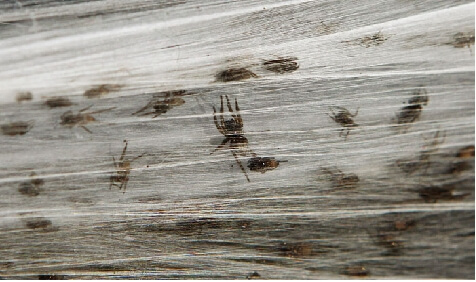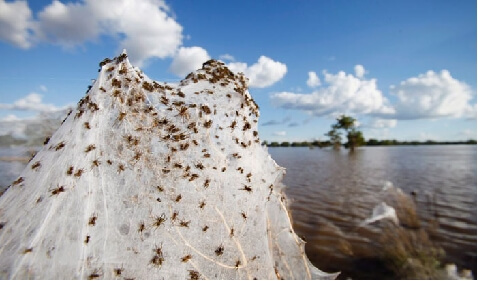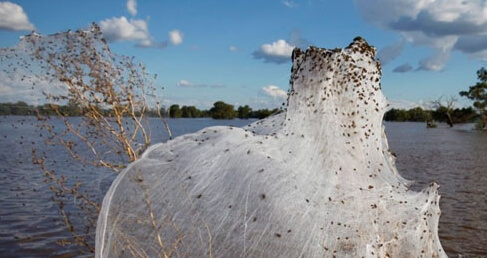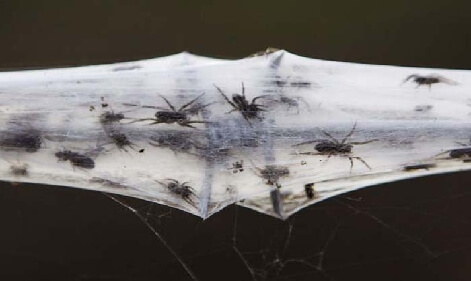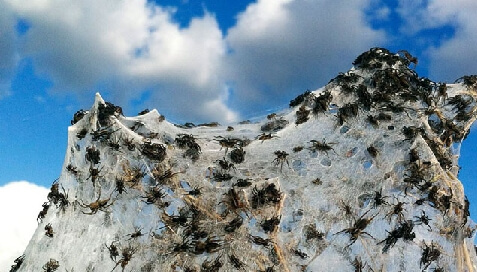In 2012 Australia suffered several days of severe rain, flooding a large area of New South Wales and causing about $530 million in damage to the areas homes, bridges, and farmlands. Photographer Daniel Munoz from Reuters News was near the town of Wagga Wagga when he shot these images of the sprawling areas of millions of swarming spiders and their webs.
It was a condition of survival; the spiders were attempting to get away from the rising waters. In moving away from the shore and upwards towards higher ground, the million spider march have left behind colossal amounts of silk along their path. Binding the webs together, the spiders made themselves a super-highway and escaped the rising waters. Spiders starting using silk to protect their bodies but learned to start using it for hunting purposes, first as guide lines and signal lines, then as ground or bush webs, and eventually as the aerial webs that are familiar today. These images however, take the cake. It is likely that people have never seen the weird and vertical rising web structures that these spiders made in their effort to adapt to their environment and in their efforts to survive.
The residents of the local town said just walking around was tough enough without having tons of spiders trying to crawl up your legs attempting to get to higher ground. The town of Wagga Wagga has an urban population of 46,913 and is the stat’s largest inland city as well as an important agricultural, military and transport hub of Australia.
Image Credit: Epundit.com








